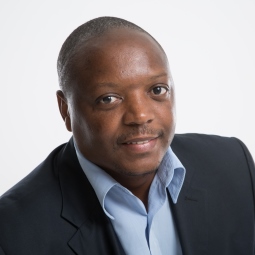160 TEACHERS TO RECEIVE MULTIMEDIA TABLETS FOR USE IN RURAL EDUCATION
The CSIR's Meraka Institute, in conjunction with various government departments, has recently completed a pilot project training teachers in the Eastern Cape to use multimedia tablets, and will now begin the project rollout to approximately 160 teachers at eleven schools. The project aims to develop a model for this type of mobile technology deployment that can be applied on a wide scale throughout the country.
The CSIR's Meraka Institute, in conjunction with various government departments, has recently completed a pilot project training teachers in the Eastern Cape to use multimedia tablets, and will now begin the project rollout to approximately 160 teachers at eleven schools. The project aims to develop a model for this type of mobile technology deployment that can be applied on a wide scale throughout the country.
The teachers of the Arthur Mfebe Senior Secondary School in Cofimvaba have been trained as part of the ICT for Rural Education Development (ICT4RED) pilot project, which has been introduced in the area as a means of supporting traditional teaching and learning with digital content on tablets.
ICT4RED is one of the sub-projects of the over-arching Technology for Rural Education Development (TECH4RED) project, a collaborative effort between the Department of Science and Technology, the Department of Basic Education, the Department of Rural Development and Land Reform, and the Provincial Department of Education. TECH4RED is aimed at contributing to the improvement of rural education through technology-led innovation.
The 17 teachers in the pilot project went through a number of professional teacher development courses. The approach taken was very different from the traditional method of training the teachers on how to use the technology in order to develop "digital literacy" skills. Rather, the aim was to develop teaching strategies which focuses on developing the appropriate pedagogy in the classroom, using technology as a tool. To support this, a comprehensive mobile learning curriculum was developed, which is available to all interested parties.
The learnings from the pilot project, which started in July 2012 and ran for a year, will now support phase 1, which will see tablets rolled out to eleven additional schools over the next two years, and phase 2, which will supply tablets to a further 14 schools, starting in 2014.
Merryl Ford, Manager: ICT for Education and mobile learning, CSIR Meraka Institute says, "We are very excited to be moving into the next stage of the project. These devices will help to change the landscape of education in rural areas, allowing teachers and students greater access to knowledge and education resources."
The new group of teachers will receive their tablets from 19 to 20 July. The project employs a "Learn to Earn" model, where the teachers will be given an opportunity to earn their tablets by attending training courses once a month in the afternoons, and by using them in their classrooms to support teaching and learning processes. The "Learn to Earn" model will be supported by an innovative award-based system, where teachers are able to earn digital badges. This unique gaming paradigm will be cascaded to schools and learners as part of further technology rollouts.
Ford is excited at the prospects of this project. "The innovative use of mobile technology has the power to transform education. We are turning old models and approaches upside down by starting with the most disadvantaged schools in the country. We work hand-in-hand with teachers and educational officials. If what we¿re doing works in rural schools, it will work anywhere."
Once the teachers and the schools demonstrate that they are ready, the rollout will be extended to learners as well. At the Arthur Mfebe Senior Secondary School where the pilot project has been a success, the second phase will be initiated on 18 July when each of the matric students will receive their own tablet to support their studies.
"We want to develop a sustainable, replicable model that can be implemented across the country," says Ford. "The project is a partnership between ourselves, government, teachers and learners where everyone has a responsibility to make it work. We are doing this with the schools, not for them, and we hope that by helping them become agents in their own success, the project will be successful far beyond our involvement."


